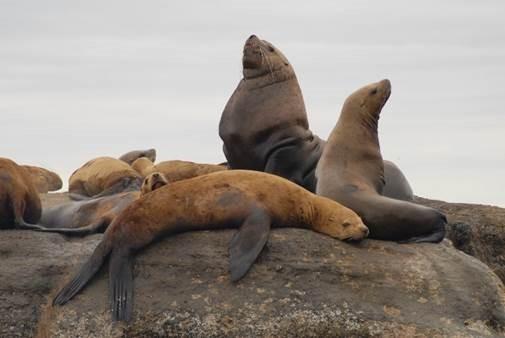Moderate
Climate vulnerability
Sensitivity to climate change
Moderate
Although not well studied, several likely impacts of climate change to Steller sea lions include (1) the alteration of marine food webs through changes in coastal upwelling patterns, warmer water temperatures, ocean acidification, changes in prey availability (including species range shifts), and changes in other ecological processes; (2) rising sea level, which may submerge or change wave energy levels at some traditional rookeries and haulouts; and (3) increased exposure to novel diseases and parasites. The decline of the western DPS of Steller sea lions that coincided with a period of ocean regime shift beginning in 1976-1977 illustrates that Steller sea lions may be highly sensitive to future climate change. Steller sea lions may be more resilient to climate change than many other marine mammal species because of their generalist diet and extended north-south geographic range. However, overall dietary flexibility is moderated by the fact that Steller sea lions have fewer foraging options during the breeding season, when adequate prey must be found near rookeries.
Exposure to climate change
Moderate
- Increased ocean temperatures
- Changes in coastal upwelling patterns
- Increased ocean acidification
- Increasing sea level
- Increasing exposure to diseases and parasites
